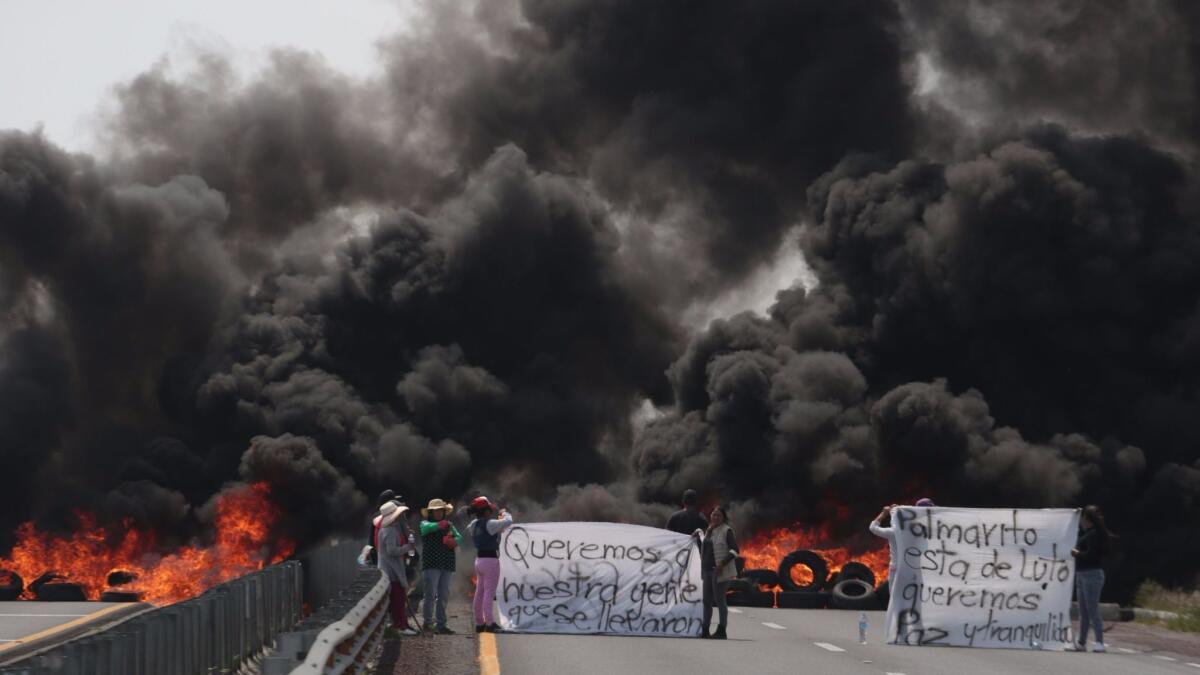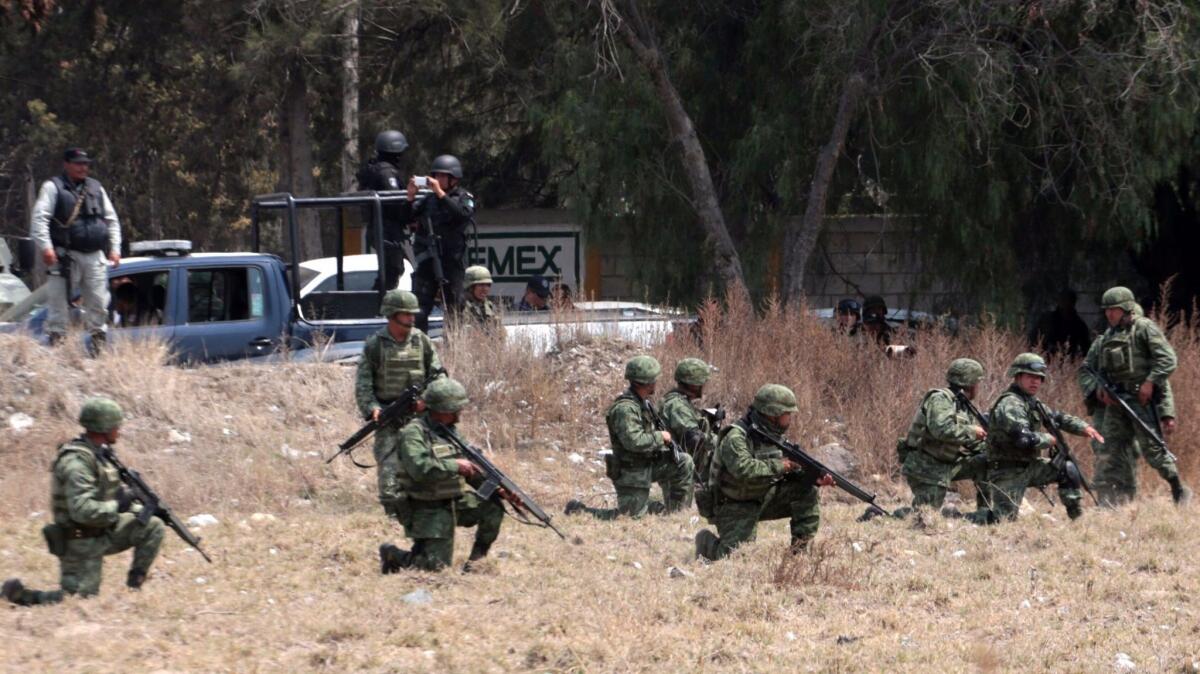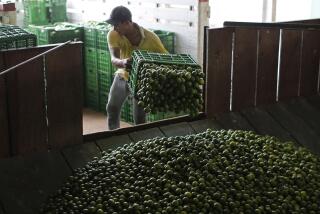Clashes between soldiers and gasoline smugglers leave 10 dead in Mexico

- Share via
Reporting from Mexico City — At least 10 people were killed, including four soldiers, in clashes between Mexican troops and fuel thieves in Puebla state, Mexican officials said Thursday.
The clashes, which took place Wednesday evening, were the most deadly confrontations to date between Mexican law enforcement authorities and fuel smugglers known as huachicoleros.
The bands of smugglers specialize in pilfering fuel from pipelines belonging to the state-owned Petroleos Mexicanos, or Pemex, and selling the product on the black market. The thieves hawk the cut-rate gasoline in plastic containers along roadsides.
The military has been deployed in force against the massive gas-smuggling industry, which reportedly costs the financially troubled Pemex hundreds of millions of dollars a year in lost revenue. But entire families have come to depend on the smuggling enterprise, authorities say.
Analysts say the smugglers work in tandem with organized narco-gangs, such as the ultra-violent Zetas, who have a major presence in the oil-producing Gulf Coast state of Veracruz. Veracruz borders Puebla, a hub of the gasoline-pilfering industry.
The huachicoleros have been tapping into pipelines and pilfering fuel for more than a decade, authorities say, but the thefts have accelerated as gasoline prices have risen this year.
Wednesday’s clashes occurred in the town of Palmarito Tochapan, where, according to authorities, smugglers and their supporters attacked military forces responding to reports that thieves had breached a pipeline. The army said it deployed about 1,000 troops to quell the violence.
Palmarito Tochapan is part of the municipality of Quecholac, one of the towns in what authorities call the “red triangle” of fuel smuggling. Authorities say the pipeline theft gangs practically control some regions and work in collusion with corrupt police and politicians.
The 10 dead were four soldiers and six “presumed criminals,” Diodoro Carrasco, government secretary in Puebla, told reporters. Among the six civilians killed was one woman, Carrasco said. More than a dozen people were injured, officials said.
Authorities have arrested 14 suspects in the attacks, Carrasco said.
Officials accused the smugglers of using women and children as human shields during Wednesday’s altercations.

But civilians protesting the army actions mounted a blockade Thursday on the Puebla-Veracruz highway. The protesters blamed the army for the clashes and casualties.
“We don’t want the military to attack us,” read one banner raised by a protester.
The military said it responded appropriately to what it called an aggression by armed gangs in five trucks, three of which were armored. Authorities vowed to continue cracking down on the pipeline tappers and the entire huachicolero industry.
“These operations against illegal [pipeline] taps will not only continue, but will be more frequent,” said Tony Gali, governor of Puebla. “This criminal presence is poisoning families, children. We saw women and children being used as shields by these cowards.”
twitter: @mcdneville
Cecilia Sanchez of the Times’ Mexico City bureau contributed.
ALSO
Gas masks, face paint, shields: Battle gear for a Venezuela protest
Dismantle bombs — or die trying.The life of a bomb defuser in Iraq
More to Read
Sign up for Essential California
The most important California stories and recommendations in your inbox every morning.
You may occasionally receive promotional content from the Los Angeles Times.









